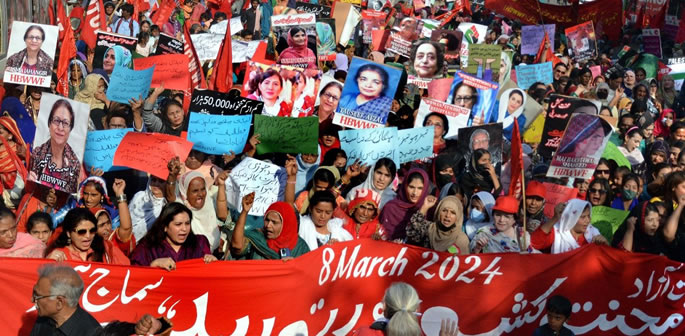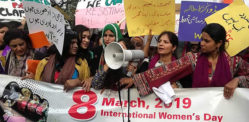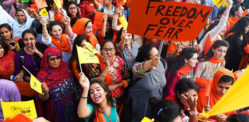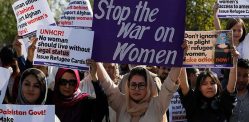“Fragile masculinity is getting triggered here in the comments.”
On International Women’s Day, Pakistan witnessed its annual Aurat March, which challenges traditional gender norms and advocates for women’s rights.
On March 8, 2024 in Karachi, women gathered at Frere Hall and marched to Teen Talwar. However, the turnout was underwhelming.
Women in Lahore congregated outside the press club, displaying public art pieces and reciting poems written by revolutionary figures.
In Islamabad, organisers claimed that participants were impeded by the police from marching towards D-Chowk.
Despite facing challenges, the Aurat March remains a vital catalyst for change.
It actively fosters dialogue and pushes for progress in the ongoing struggle for women’s rights in Pakistan.
Despite its positive message, Pakistanis do not understand or respect Aurat March, specifically, men but women as well.
This day has sparked both controversy and crucial conversations nationwide.
While feminism has often been misunderstood and misrepresented in Pakistan, this march has emerged as a powerful platform for redefining feminism.
It challenges stereotypes, and advocates for gender equality.
In the Pakistani context, feminism has long been associated with western ideologies and unfortunately viewed through a negative lens.
Misconceptions abound, with many perceiving feminism as a threat to traditional values and societal structures.
One user said: “I am a woman, and I absolutely do not support Aurat March.”
Another wrote: “Marching against men when their whole lives are run because of men.”
One commented: “Fragile masculinity is getting triggered here in the comments.”
In a nation grappling with enduring gender disparities, feminism becomes crucial for tackling deep-rooted inequalities.
A primary objective of the Aurat March is to challenge misconceptions surrounding feminism.
Through innovative slogans, posters, and performances, participants aim to confront societal norms and initiate discourse on often overlooked issues.
Slogans such as “my body, my choice” and “khud khana garam karlo” have gained attention for their boldness and unapologetic stance.
Despite legislative reforms and increased awareness campaigns, violence against women remains a pervasive issue in Pakistan.
As per the Aurat March organisers’ report, the Human Rights Commission of Pakistan documented 2,297 cases of violence against women in 2020.
This alarming figure includes 244 instances of honour killings and 45 acid attacks.
In this challenging context, the Aurat March of 2019 marked a historic moment for women in Pakistan.
It marked a historic moment as women openly addressed issues in the public domain.
These included sexuality, sexual and reproductive health, consent, marriage, divorce, and bodily autonomy for the first time.
By bringing these concerns into the public sphere, the Aurat March challenged societal norms.
It highlighted the urgent need for conversations and actions regarding women’s rights and bodily autonomy.






























































